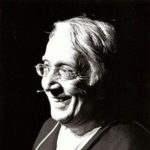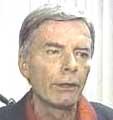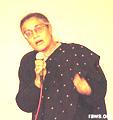Neruda: Life and Work
This sound portrait of Pablo Neruda (1904-1973) traces his Nobel Prize-winning career and includes readings from his memoirs and some of his greatest poems from his masterwork Canto General including bi-lingual readings of “La Huelga,” “Los Dictadores,” “Reciben Ordenes” and “La United Fruit Company.” You also hear Victor Jara, Inti-Illimani, Maria Farandouri and Quilapayun singing some of his poems. Neruda said, “Poetry is like bread. It should be shared by all.”
With the participation of Laura Marshall, Laura Pena and Jose Urrutia. Produced and hosted by David Barsamian as part of his Ganges to the Nile series on KGNU.
Speaker
Pablo Neruda
Pablo Neruda was the pen name of the Chilean poet, diplomat and politician Neftali Ricardo Reyes Basoalto. He chose his pen name after the Czech poet Jan Neruda. In 1971 Neruda won the Nobel Prize for Literature. He became known as a poet while still a teenager. He was extraordinarily prolific and wrote in a variety of styles from historical epics and political manifestos, to erotically-charged love poems such as in his famous 1924 collection Twenty Love Poems and A Song of Despair. His Canto General of which The Heights of Macchu Picchu is part, is considered his masterwork. He often wrote in green ink, which was his personal symbol for desire and hope. His fellow Nobel Laureate Gabriel García Márquez called him “the greatest poet of the 20th century in any language.” Edward Said said Neruda “dealt with internal colonialism in Chile and with external imperialism throughout Latin America.” He passed away on September 23, 1973, just days after the CIA-backed coup in Chile. Questions persist about whether his death was deliberate.






Reviews
There are no reviews yet.